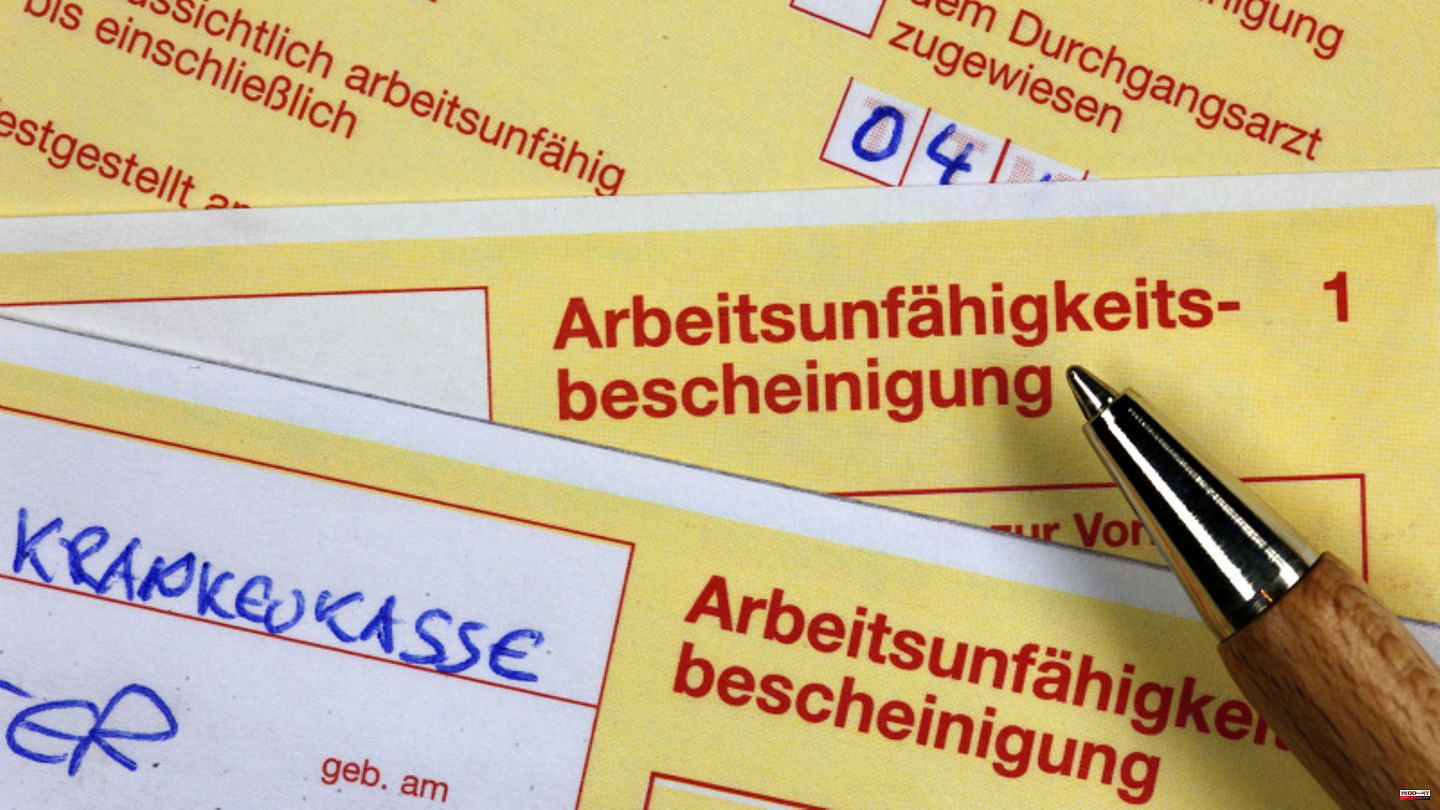This article first appeared on RTL.de
Anyone who is ill and receives a sick note from their doctor may have already noticed: In many medical practices, only two certificates of incapacity for work (AU) are issued: one AU copy for the employer and one for the patient. The medical practice is now taking over the AU notification to the health insurance company digitally. Medical practices that are not yet connected to the electronic procedure had to switch to the digital reporting system by the end of 2022.
This also has consequences for companies: from January 1, 2023, they will no longer receive a "yellow note" from their employees. The data on their employees' incapacity for work can only be accessed electronically from the health insurance company.
This involves a lot of data: around 77 million certificates of incapacity for work are issued and submitted every year.
From January 2023, employees who have statutory health insurance will no longer have to submit a sickness certificate to their boss or the HR department. The employer must then collect the certificate of incapacity for work from the health insurance company himself.
But there are exceptions to every rule: there is currently no provision for an electronic certificate of incapacity for work for privately insured employees. In these cases, the employees must continue to submit the sick note in paper form themselves. "The same applies to private doctors or AU certificates from abroad," explains Techniker Krankenkasse.
But watch out! If you are ill, you still have to report your incapacity to work to your employer immediately. The changeover to the digital health insurance certificate will not change that. The only thing that does not apply is the obligation to present the sickness certificate to the employer no later than on the fourth day of incapacity to work.
"Yes, that's possible," explains Regine Windirsch, a specialist lawyer for labor and social law. Ideally, anyone reporting sickness over the phone should let their partner or another close person listen. In case of doubt, the patient can prove that the call actually took place.
"Those who send an e-mail should best call back to be sure that the e-mail has actually arrived," says Windirsch. The same applies to sick leave via SMS. "Caution is required when reporting sick, for example via Whatsapp or Telegram," says Stach. Here, too, the following applies: employees bear the risk of faulty data transmission themselves.
no "The principle applies that the type and cause of the disease are private matters," says Daniel Stach, legal assessor and union secretary at the Verdi federal administration in Berlin. However, the following applies: "In exceptional cases, there may be an obligation to notify," explains Windirsch. This is the case with contagious diseases such as measles, mumps, hepatitis B or influenza, where the employer must take measures to protect the workforce. There is always an obligation to notify the employer if there is a risk of infection for colleagues. This is also the case with Covid-19.
Generally, yes. Because with the certificate of incapacity for work, the doctor predicts the expected duration of the incapacity for work. "But this does not involve a ban on activity or employment," clarifies trade unionist Stach. This also does not affect the insurance cover. However, the employer should be informed in advance. In the case of colds or other contagious diseases, employees should only return to their workplace when there is no longer any risk of infection. (with dpa/aze)












